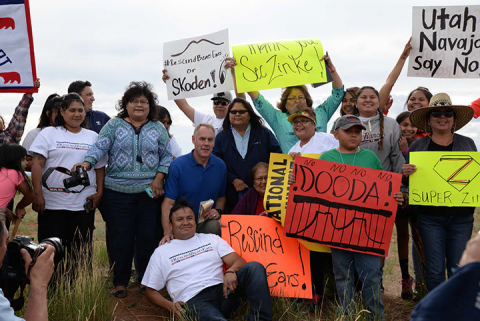

Introducing the Social Capital Project
Today, Americans face a wide variety of challenges in our era of tumultuous transition. We are materially better off in many ways than in the past. But despite this real progress, there is a sense that our social fabric has seen better days. Leading thinkers have issued warnings that we are increasingly “bowling alone,” “coming apart,” and inhabiting a “fractured republic.” At the heart of those warnings is a view that what happens in the middle layers of our society is vital to sustaining a free, prosperous, democratic, and pluralistic country. That space is held together by extended networks of cooperation and social support, norms of reciprocity and mutual obligation, trust, and social cohesion. In short, it is sustained by what we do together.
This week I am launching the Social Capital Project. This project is a multi-year research effort that will investigate the evolving nature, quality, and importance of our associational life. “Associational life” is our shorthand for the web of social relationships through which we pursue joint endeavors—namely, our families, our communities, our workplaces, and our religious congregations. These institutions are critical to forming our character and capacities, providing us with meaning and purpose, and for addressing the many challenges we face.
The goal of the project is to better understand why the health of our associational life feels so compromised, what consequences have followed from changes in the middle social layers of our society, why some communities have more robust civil society than others, and what can be done—or can stop being done—to improve the health of our social capital. Through a series of reports and hearings, it will study the state of the relationships that weave together the social fabric enabling our country—our laws, our institutions, our markets, and our democracy—to function so well in the first place.
You can read the first report of the Social Capital Project here:
National Monument Review Comment Period
Last week Interior Secretary Ryan Zinke spent several days touring Utah's public lands as part of the national monument review that was requested by President Trump. He met with elected officials, various groups throughout the state that have been directly impacted by the Bears Ears and Grands Staircase-Escalante National Monuments. For the first time ever, the Department of Interior is accepting public comments about these and other national monument designations. I encourage all Utahns to share their feedback with the Department of Interior:
Live Town Hall on Wednesday
I am holding a live town hall meeting on Wednesday, May 17 at 5:00 p.m. MT. You can participate by phone or online. Text SenMikeLee to 828282 or Click here to sign up to be part of this event.